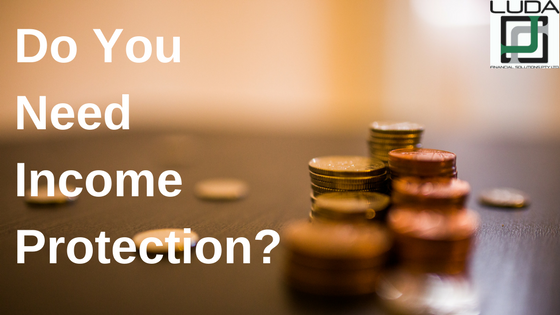
Income Protection: What Is It & Do You Need It?
Income protection: two words that more often than not are met with a passing dismissal. Many people believe they can’t afford or don’t need it, but if you’re ever unable to work due to unexpected illness or injury, you’ll be glad that you have income protection in place.
No one likes to think about what would happen if they were involved in an accident or became to ill to work. But the reality is that you never know what’s around the corner.
So what is income protection?
Income protection insurance can help you cope financially if you’re ever unable to work if you are sick or injured. If you’re reliant on your earnings to meet your financial commitments, which most of us are, then think about what would happen if that income dried up overnight.
Would you be able to pay your mortgage, bills and other commitments? If the answer is no, then you need to put income protection in place.
Whether you’re an employee or self-employed, if you rely on your regular earnings, protecting it is crucial to the financial safety of your family. Having the peace of mind that if your income was suddenly no longer available, you’d still be able to pay your mortgage or rent, and all your monthly bills, is priceless.
The last thing you need to be worried about when you’re experiencing poor health is how you’re going to pay your bills and keep a roof over you and your family’s head.
How does it work?
Income protection policies can provide a percentage of your gross earnings (normally up to 75- 85% of your pre-disability income) and there are different options to consider.
You can choose different waiting periods and benefit periods – both of which will need to be personalised to your individual circumstances. Your choices here will also affect your premium for the policy.
Waiting periods usually range from 30-90 days. This means that you’ll often have to wait from 1 to 3 months before you can start receiving an income from the policy. For this reason it’s good to have a safety net of savings to cover any potential gap between your income ending and your income protection policy kicking in.
Benefit periods are the maximum length of time you can claim payments from your policy. Many policies have a standard 2 year benefit period but some are able to be paid until you’re 65 or retirement age.
Different policies and insurers will also have different definitions of disability so be sure to read your policy terms very carefully – or get your financial advisor to explain them clearly to you. Definitions will cover things like whether you are able to perform the duties in your pre-disability occupation, how many hours you are able to work per week and whether you can perform other duties different to the ones you did previously.
If you’re concerned you may not be able to meet your financial commitments in the event you’re unable to work unexpectedly, talk to our financial advisors in Joondalup today. We’re also able to review any current income protection policies you may have and assess whether they are sufficient to meet your financial circumstances. Get in touch with us today!
This blog does not constitute advice – all circumstances are different and we highly recommend speaking to a trusted financial advisor before making any decisions around personal insurances.
